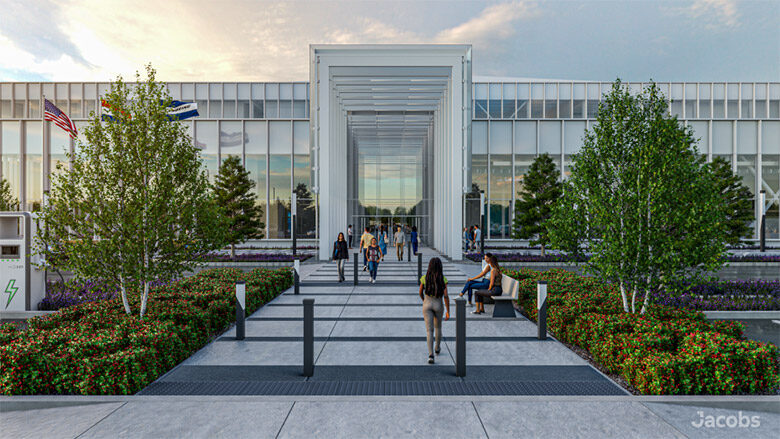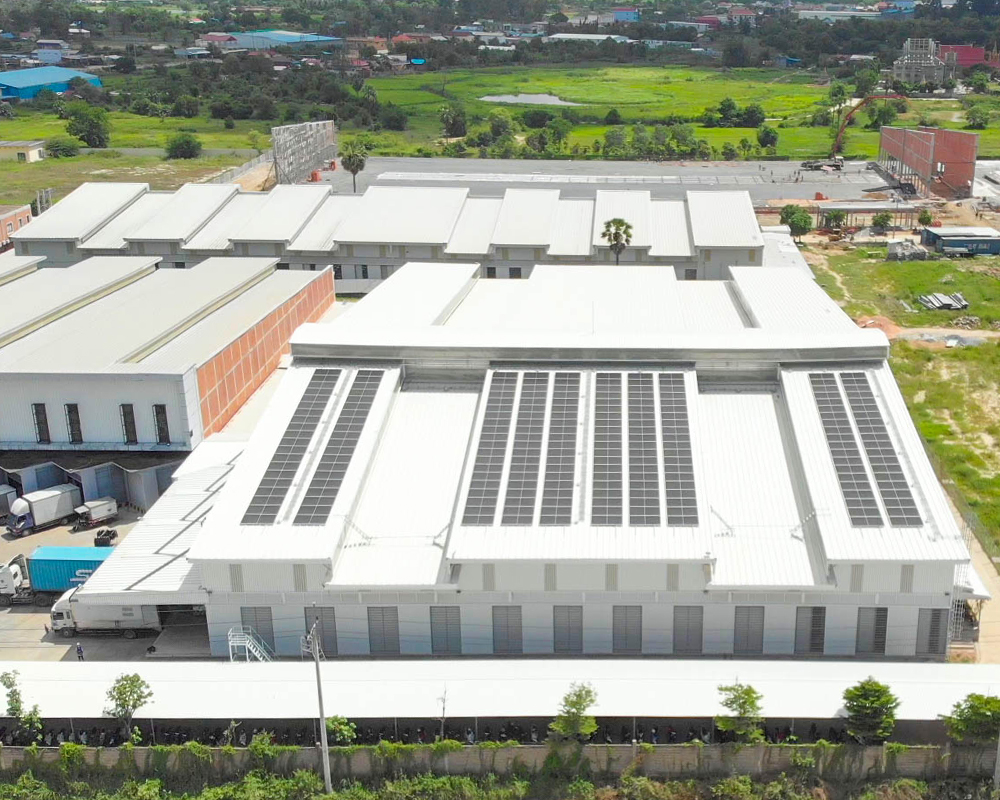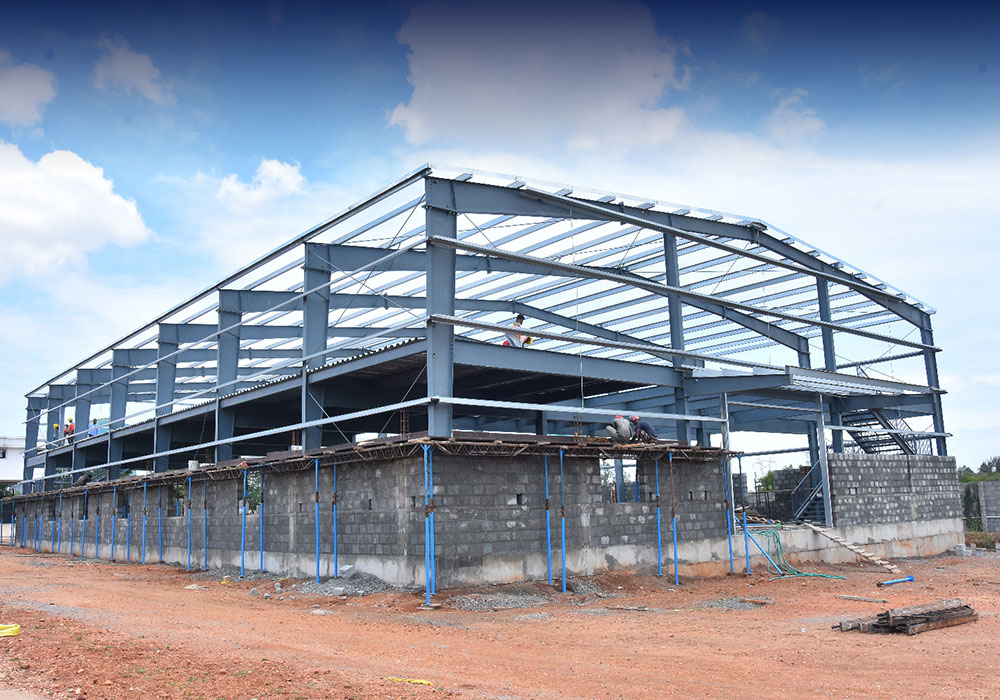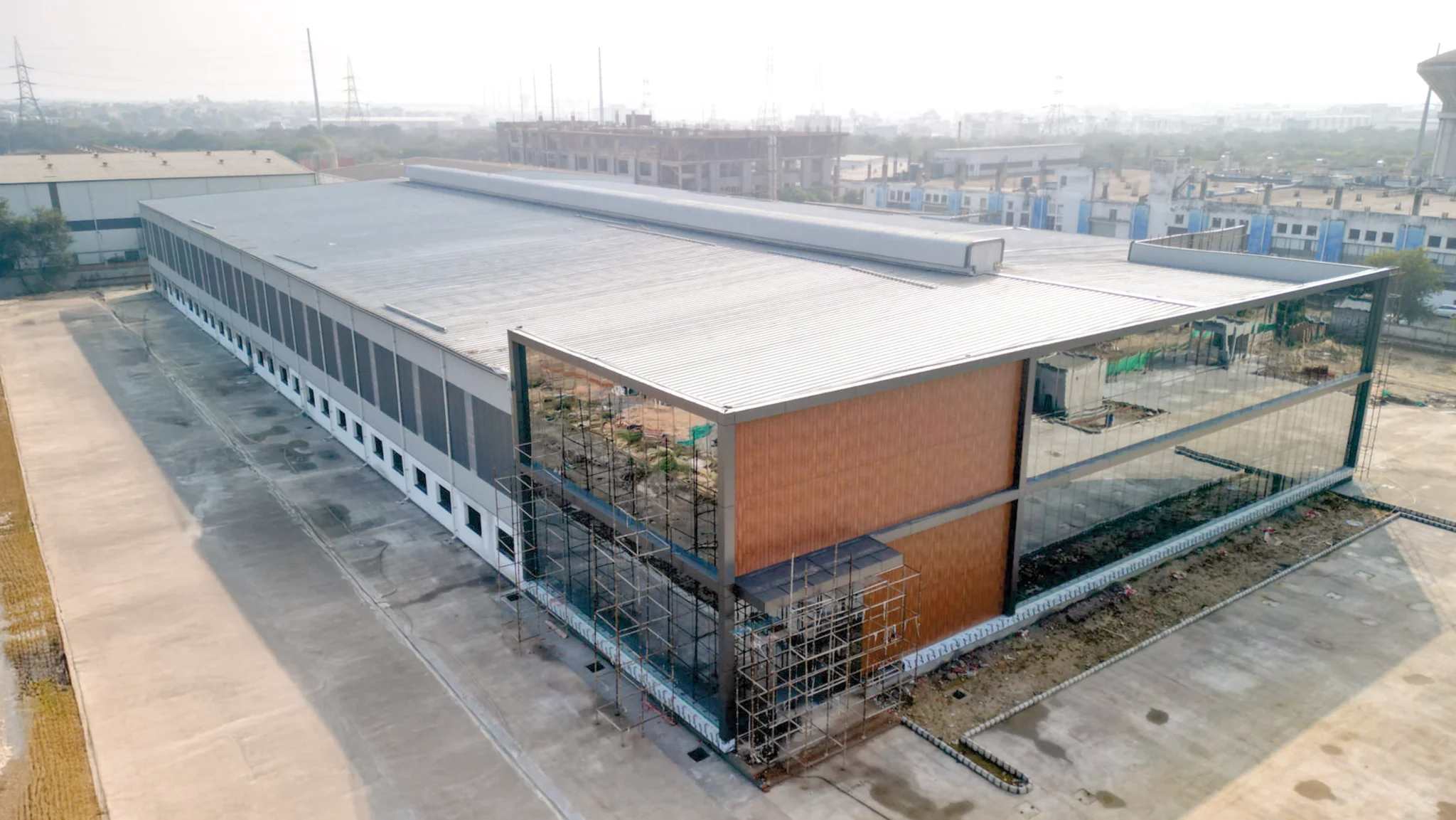
Jacobs to Expand $1.8B Military Aviation Manufacturing Campus in St. Louis
[ad_1]

Jacobs has been chosen to provide design, engineering and environmental services for Boeing’s $1.8-billion expansion of an advanced combat airport manufacturing facility near St. Louis Lambert International Airport.
The 1.1-million-sq-ft expansion of the Boeing Defense, Space and Security campus will support advanced assembly facilities and the associated post-assembly operations center for future generations of advanced aircraft, Boeing states.
Site construction has begun and the expansion will be completed in multiple phases between 2026 and 2030.
A document published in 2023 by the U.S. Dept. of Transportation found the expansion posed no significant impact on the various areas that were studied including air quality, biological resources, historic, architectural and cultural resources and climate.
The document states that the facility’s purpose is “to improve aircraft assembly capabilities at the airport and to allow Boeing additional airfield access for aircraft flight testing.”
The first phase of the project, according to the transportation department, includes demolition of existing structures; clearing vegetation and grading; construction of an assembly building, central utility plant, hangars, hush house, two support buildings and storage structures; road improvements; and automobile parking areas. The facilities would be secured with new perimeter fencing and guardhouses. Phase two will cover construction of additional buildings and increase the center’s operations.
Boeing Vice President of St. Louis Site Readiness Mark Webb said the new facility will allow for advancements in digital design and manufacturing and that it will continue to grow in facilities and head count for the next several years.
Jacobs Executive Vice President Susannah Kerr said in a press release that Jacobs has already been assisting in the expansion.
“During the past two years, our ongoing collaboration with Boeing, from design concept through construction and accelerating National Environmental Policy Act approvals in eight months, reflects Jacobs’ commitment to supporting national security and defense operations by providing critical facilities and infrastructure,” she said.
Katerina Canyon, executive director of the Peace Economy Project, is opposed to the expansion.
“While Boeing’s expansion in St. Louis may promise economic benefits, the environmental and climate impacts of scaling up defense manufacturing demand urgent consideration,” she said. “Expanding Boeing’s footprint in St. Louis is beyond a manufacturing decision. It is an escalation in our regional carbon load.”
According to its website, The Peace Economy Project researches military spending, educates about
the hazards of an unchecked military-industrial complex and advocates
for conversion from a military- to a more stable, peace-based economy.
[ad_2]
Source link
Post a Comment
You must be logged in to post a comment.






